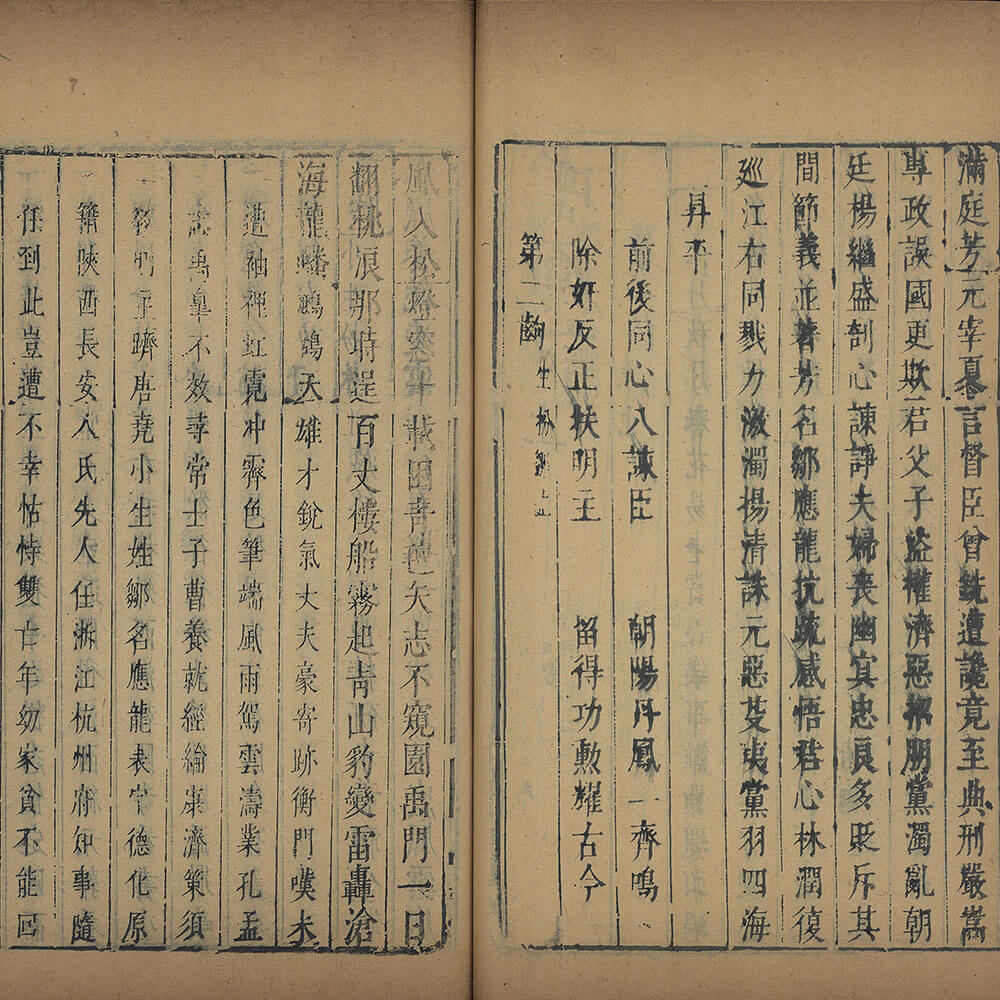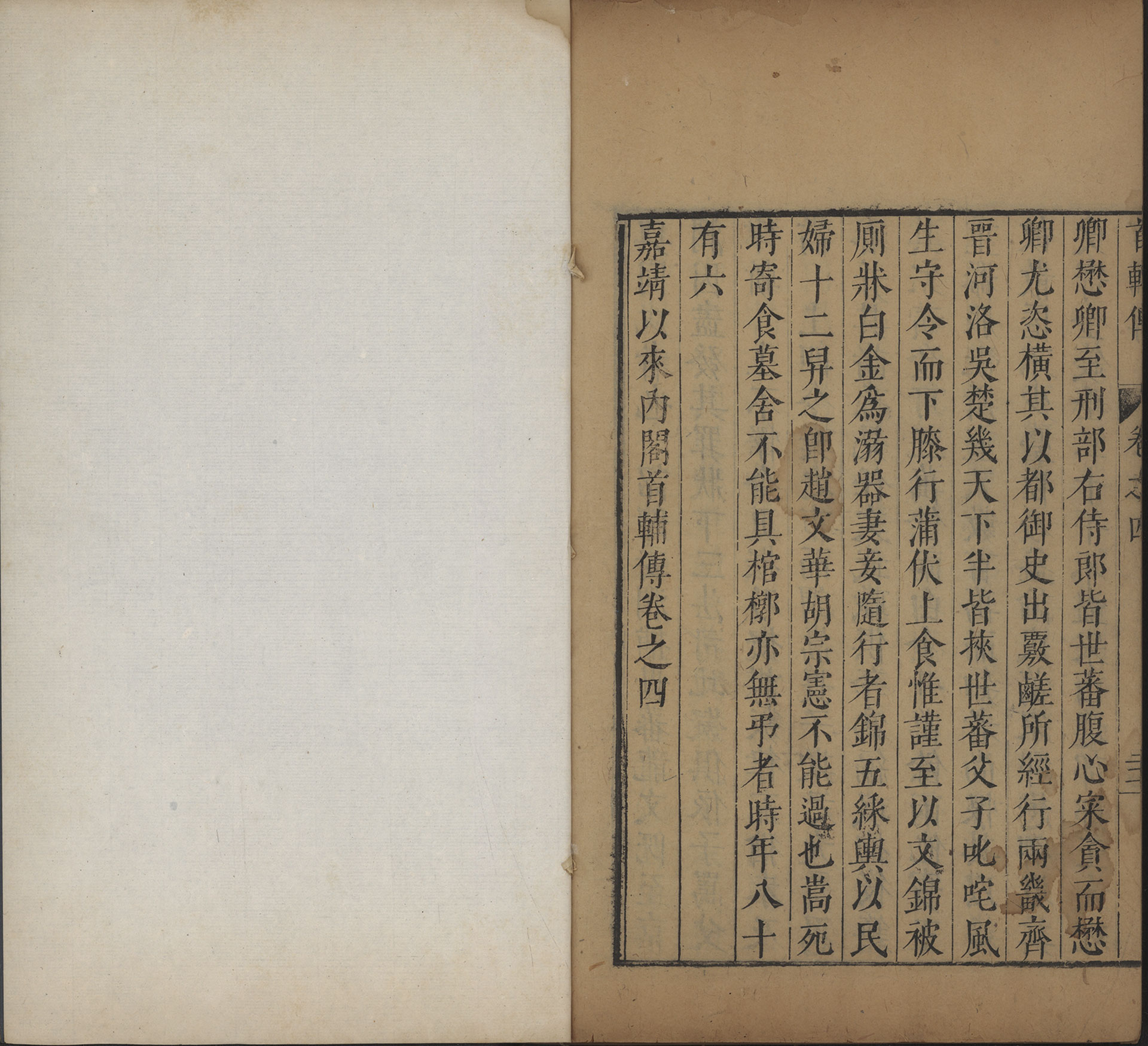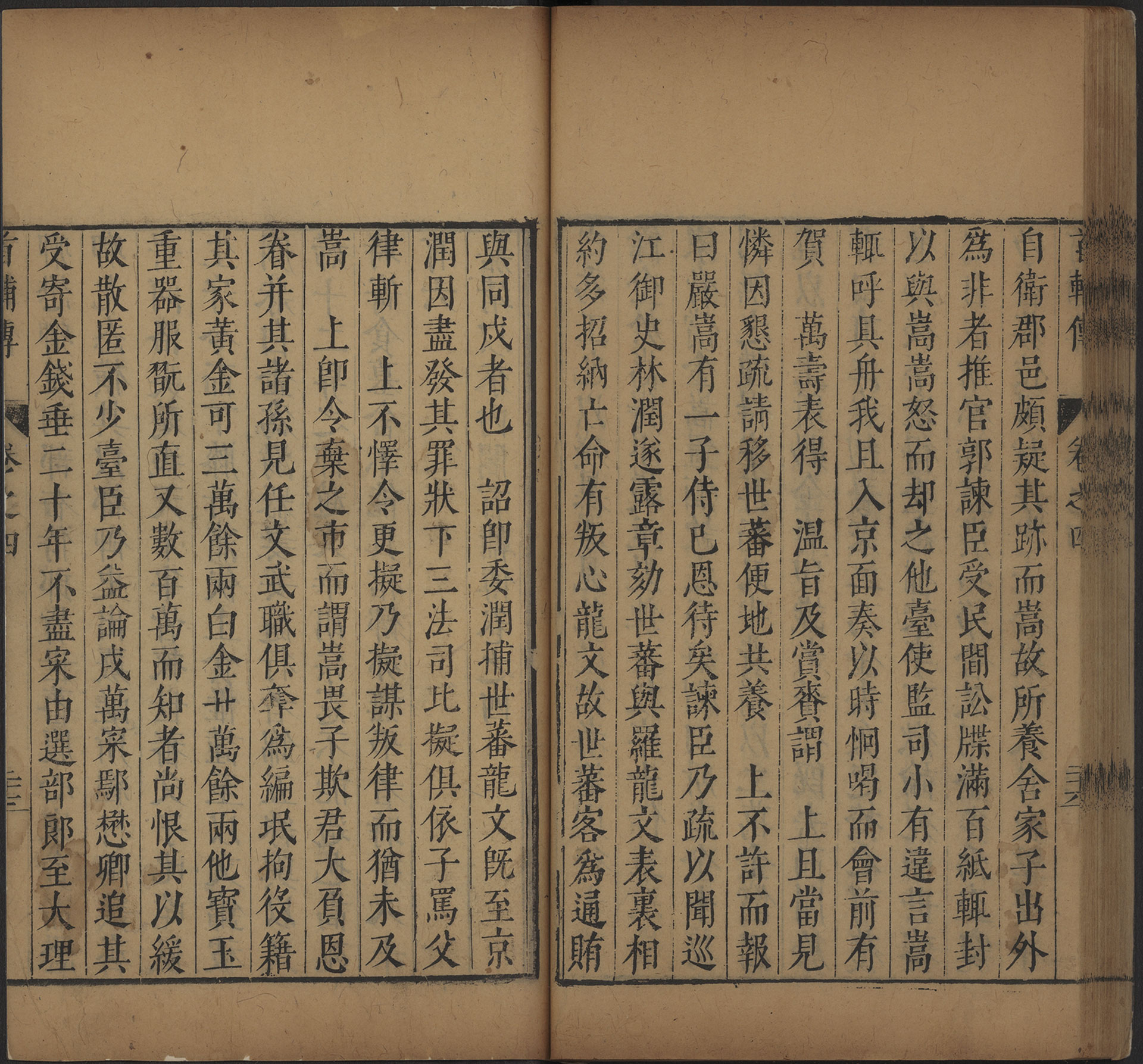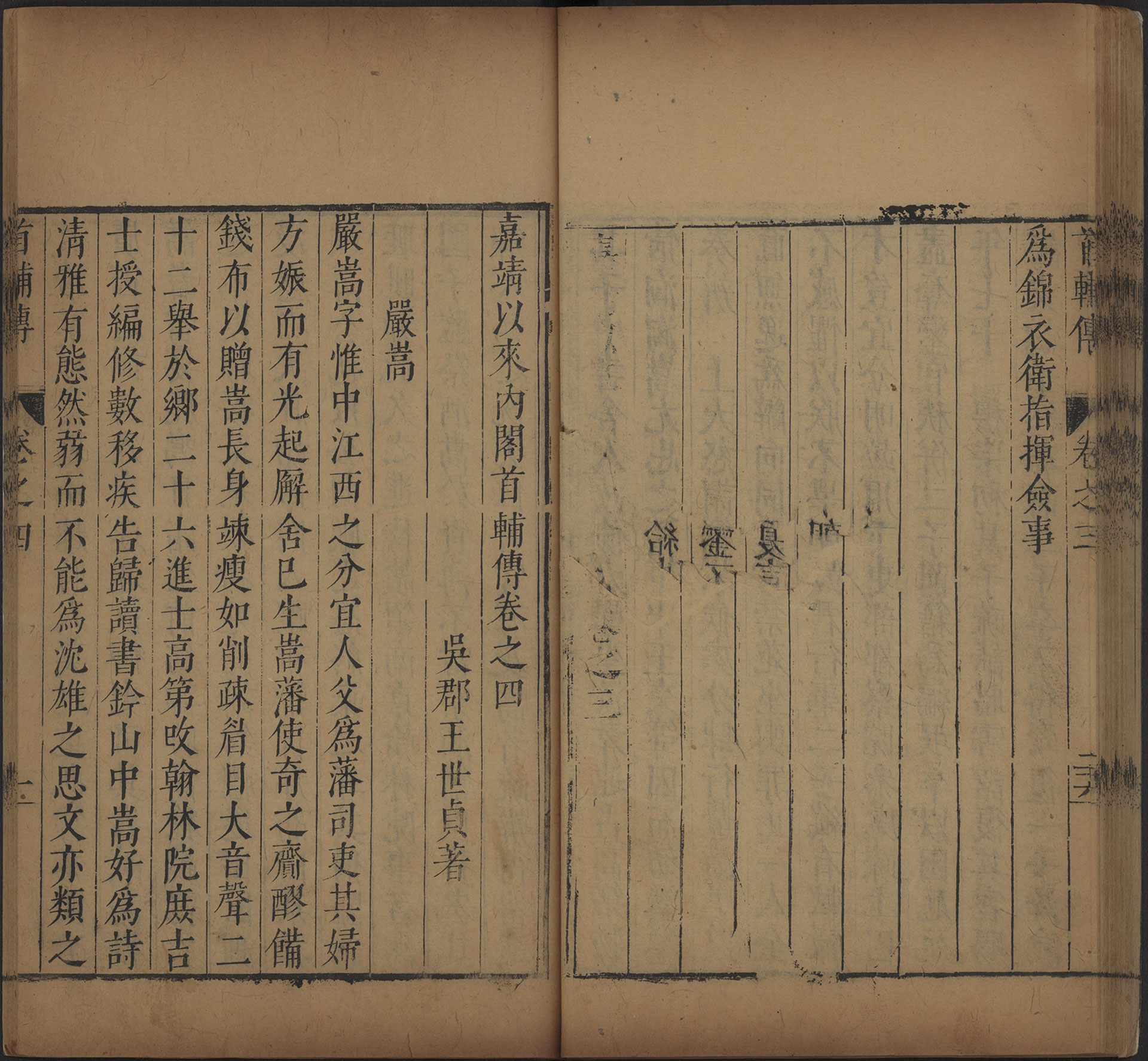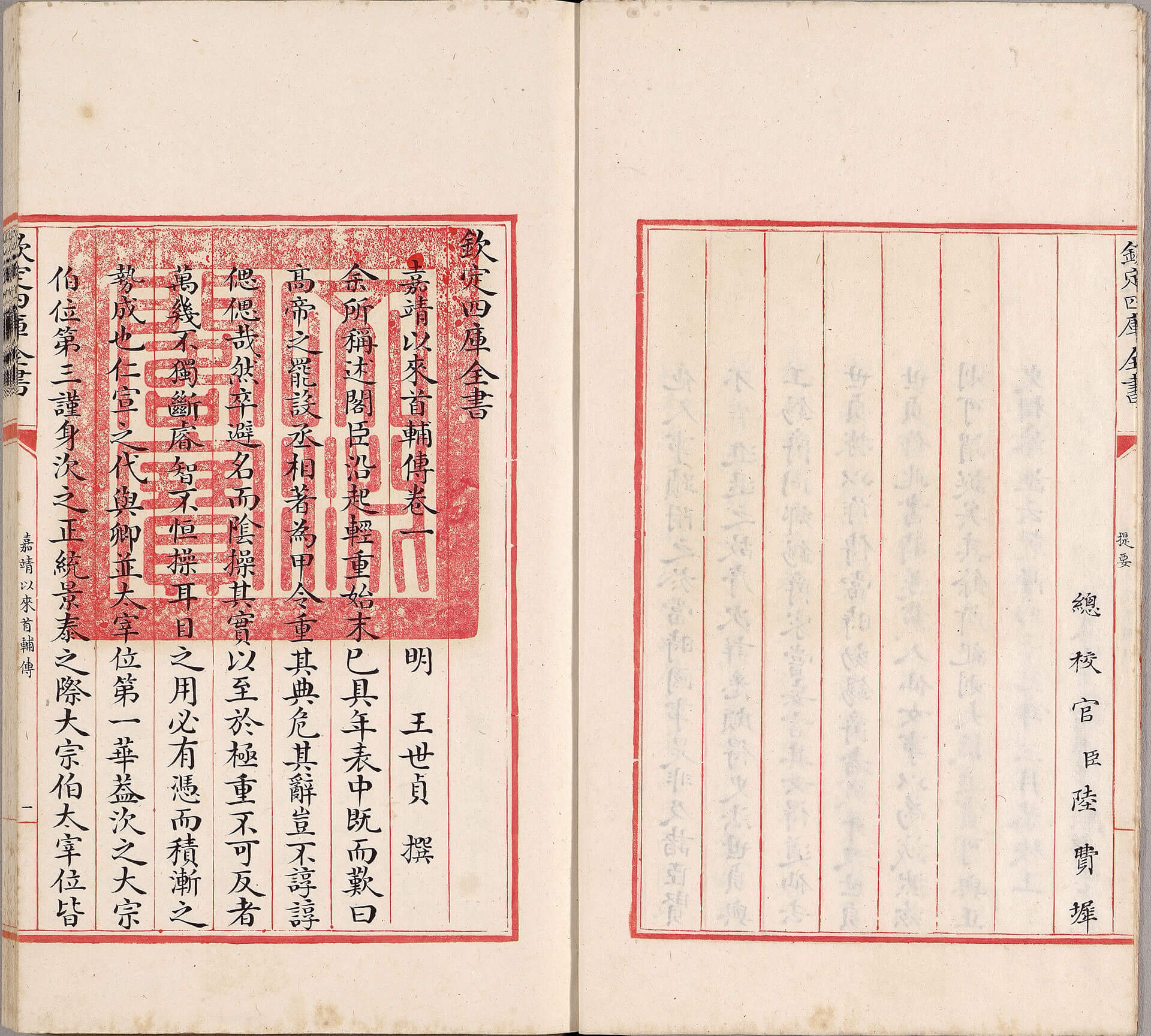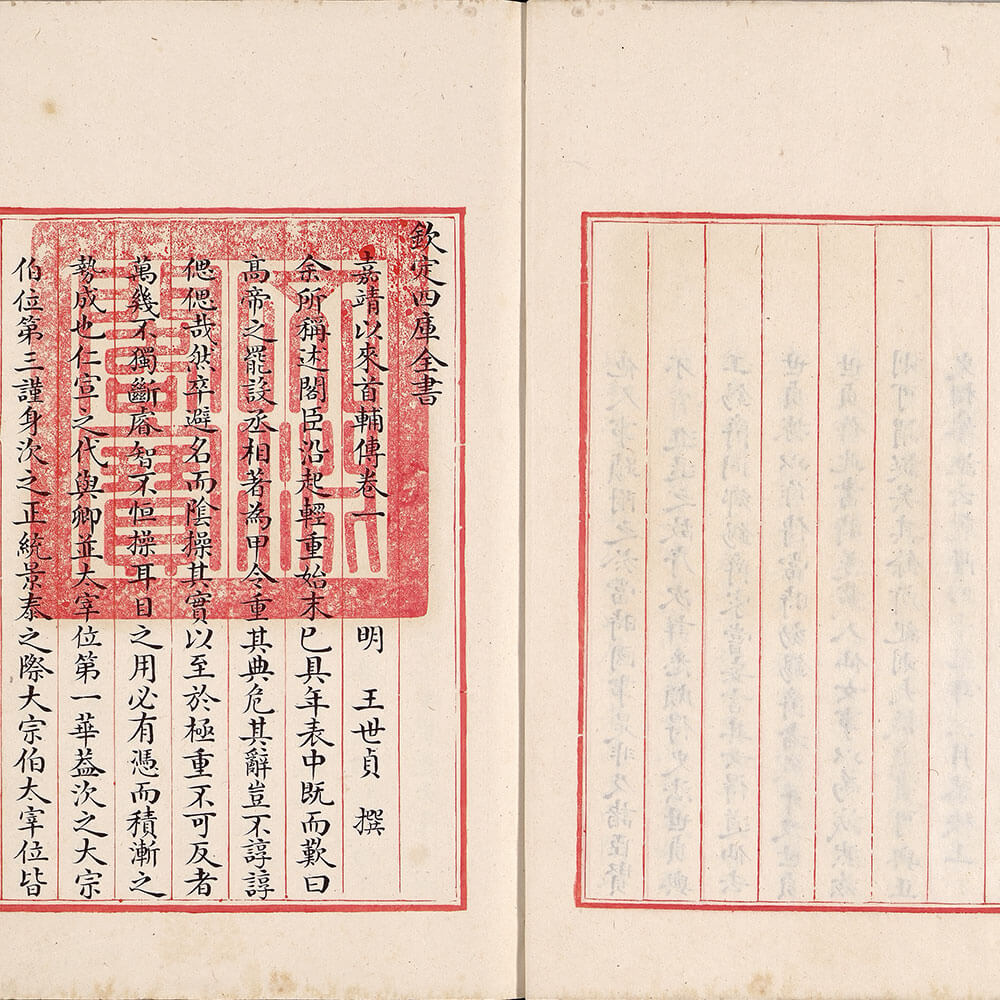A Son's Revenge and Making History
The novel Plum in the Golden Vase contains many inferences to the lavish and licentious lifestyle of Yan Shifan (1513-1565), son of the infamous Yan Song, with some suggesting that it may actually have been written by Wang Shizhen as an act of revenge. The play Cry of the Phoenix (Mingfeng ji), written not long after the execution of Yan Shifan, even more explicitly describes the harm brought to both country and people by the corruption of and monopoly of power held by Yan Song and son with their faction, this masterpiece being attributed to Wang Shizhen and his disciples, too. With the performance of Cry of the Phoenix and popularity of Plum in the Golden Vase, combined with Wang Shizhen's Biographies of Premiers Since the Jiajing Reign (Jiajing yilai shoufu zhuan), which became a foundation for the later written history of the Ming dynasty, the traitorous image of Yan Song and his son became emblazoned in the consciousness of people and entered into the annals of history. Wang Shizhen, with his authoritative voice in culture and talent as a historian, may indeed have finally avenged his father through literary and historical writings. The family disaster and vicissitudes of Wang Shizhen's own career as an official led him to devote himself to the arts and critique. As a result, the observations and descriptions of the flourishing world in the late Ming were passed down to later generations through his brush. Under Wang Shizhen's leadership, a new view thus emerged.
Tale of the Crying Phoenix
- Anonymous, Ming dynasty (1368-1644)
- Exhibition time I. 10.5(Wed.)-12.25(Sun.)
Tale of the Crying Phoenix describes how eight upright state officials including Xia Yan (1482-1548) and Yang Jisheng (1516-1555) fought against the atrocities of Yan Song and his son, who wrongfully took advantage of their power and aided many evil deeds during the reign of the Jiajing Emperor of the Ming dynasty. Most of the characters in the play are under the real names of historical figures, and part of the plot is written and revised in accordance with historical events. The play can thus be called the first theatrical work in the history which fully reflects a major contemporary political event in the development of ancient Chinese opera and literature. After the play was published, it was performed throughout different eras with great reception. It was also adapted after it was included in Zuiyiqing: Collection of Kun Operas, with several chou "comic" roles added, performing for a significant portion of the play. Through the dramatic effects of satire, the evil image of Yan Song and his wickedness became more deeply rooted in the hearts of the people.
Biographies of the Grand Secretariats Since the Jiajing Emperor
- Wang Shizhen (1526-1590), Ming dynasty
- National Center Library
- Exhibition time I. 10.5(Wed.)-12.25(Sun.)
Biographies of the Grand Secretariats Since the Jiajing Emperor
- Wang Shizhen (1526-1590), Ming dynasty
- National Treasure
- Exhibition time II. 12.28(Wed.)-3.21(Tue.)
Biographies of the Grand Secretariats Since the Jiajing Emperor recorded in the manuscript copy from the Siku Quanshu was originally titled Biographies of the Grand Secretariats of the Cabinet Since the Jiajing Emperor in the Ming-dynasty edition published during the reign of the Wanli Emperor, and is an important work of Wang Shizhen (1526-1590).
Historiography is one of the main focuses in Wang Shizhen's writings, and he was used to composing comments on social affairs from the perspective of historiography. In the early Ming dynasty, the Prime Minister system was abolished, and the significant post of Grand Secretariat was set up to aid the government. This book records the life stories of mainly the Grand Secretariats and prominent state officials during the three dynasties of the Jiajing, Longqing, and Wanli Emperors, along with those of other related historical figures. The life stories of these characters are all vividly depicted in the texts. The story of Yan Song (1480-1567) and his son, who had various grievances and conflicts with the family of Wang Shizhen, occupies a great number of pages in this book. Although the wordings and viewpoints are inevitably controversial due to Wang's personal opinions, the records still became an important source of information for later generations to judge the merits and demerits of Yan Song and his son.

